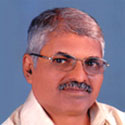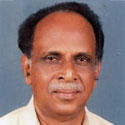About Us
The Dutch landed at the Malabar Coast for spice trade 106 years after the advent of Vasco de Gama.
The website entitled Dutch in Kerala.com is a genuine attempt to explore the multi faceted mutual impact of United Dutch East India Company of Netherlands and Kerala as the meeting ground of two Occidental and Oriental Nations at its true historical context. Among the European nations, the people of Netherlands were noted for their adventurous, enterprising and highly compromising nature. Similarly being blessed by the nature, the people of Kerala excelled themselves in their universal and cosmopolitan outlook. Kerala as the God’s own country remained the source of attraction to the foreigners by virtue of its rich resources like pearls, jewels, precious stones, pepper, cardamom, ginger, indigo, peacock, apes, panthers, sandalwood, teak and ebony. It became the emporia of world trade and commerce and thereby the meeting point of the Greeks, Egyptians, Romans, Arabs, Chinese etc long before renaissance and the geographical explorations.
Malayinkil Gopala Krishnan
Editor, www.dutchinkerala.com
Waynadu House, T C 29/1741 (2), CRA 85, CRA 85, Vallakkadavu PO; Trivandrum -695008, Kerala State, India, Mobile:9446503503, Landline: 0471-2451660, Email malayinkilgk@yahoo.com
Dr. B Sobhanan
Consulting Editor, Gayathri, Vattavila, Kottukal PO (Via) Balaramapuram, Trivandrum 695501, Kerala State, India, Email dr.bsobhanan@yahoo.com, Mobile:9895016968
The Portuguese, the Dutch, the Danes, the English and the French founded their commercial settlements one after another at the most pivotal places of Kerala. There followed a period of keen completion among the European powers centered on their settlements in Kerala. Though the Portuguese pioneered themselves in the establishment and expansion of their commercial settlements in Kerala their hegemony was not destined to last long in Kerala. From 1498 to 1663 the Portuguese remained the greatest colonial and imperial power in Kerala in the midst of serious threats from the local powers. Thereafter the United Dutch east India Company emerged itself as the greatest colonial power in Kerala. Right from their advent the Dutch were warmly welcomed by the local rulers as well as by the people of Kerala. For instance the Portuguese tried to establish friendship with the Zamorin of Calicut since their advent but failed even after repeated attempts.
Admiral Steven Vander Hagen, the Dutch Governor succeeded to sign a permanent and perpetual treaty with the Zamorin of Calicut in 1604, a short period after their advent in Kerala. They could achieve within a very short period that the Portuguese failed to achieve in the course of last one century or more. Thereafter the Dutch continued to establish their commercial settlements in almost all the princely states of Kerala. The local rulers of Kerala competed each other to court the friendship of the Dutch. Finally by 1663 the Dutch succeeded to expel the Portuguese with all their bags and baggages from the soil of Kerala and the Dutch emerged themselves as the greatest colonial and imperial power in Kerala. The Dutch hegemony lasted for a period of one hundred and thirty two years from 1663 to 1795 A.D. This period was noted for the comprehensive developments in Kerala through the Dutch intervention. The Dutch intervention in the political, social, religious, economic and cultural spheres assumed greater importance.
The Dutch cultivated friendship with the Zamorins of Calicut, the Raja of Cochin, the rulers of Chempakasseri, Kayamakulam, Kollam, Purakkad, Travancore, Vadakkamkur, Cannanore, Ponnani, Parur, Alangad, Edappali, Tekkumkur, besides other settlements like Pulicat, Bimblipatam, Porto Novo, Fort St. George, Fort St. David, Pondicherry, Cuddalore, Nagore and Nagapattinam. Admiral Van Goens played the most decisive role towards the elimination of the Portuguese from Kerala. Thereafter with certain political fluctuations the Dutch continued to retain their political predominance till the battle of Kulachal in 1741.When the English were wandering for certain commercial settlements in Kerala in the course of the seventeenth and the first half of the eighteenth centuries the Dutch remained the supreme power in Kerala. The battle of Kulachal seriously affected the Dutch hegemony though they remained the supreme power in Kerala till the end of the eighteenth century.
In the field of society and religion they were noted for their universal and cosmopolitan outlook. Though they were basically Protestant Christians in their faith here in Kerala they followed a pro Syrian policy against the Portuguese system of padroado. They stood with the Propaganda of Rome and championed the cause of the Carmelite missionaries who hailed mostly from Italy. The Dutch left everlasting contributions in the field of printing, art, architecture, administration, economy, science etc. The botanical work Hortus Malabaricus constitutes the major contribution in the realm of science.
The first part of the study unravels the history of Kerala through the ages; the second part dwells upon the establishment and growth of the United Dutch East India Company of Netherlands in Kerala and the last part harps upon the impact of the Dutch hegemony in Kerala. The treatise is largely based on a variety of original sources mostly the manuscript documents collected from the archival repositories in Kerala supplemented by all the available secondary sources as well as the corresponding evidences including field survey and discussions.
We are grateful to Dr. B. Sobhanan, Former Professor and Head, Department of History, University of Kerala for his suggestions and comments. We record our sincere thanks to Mr M K Sivankutty former Joint Commissioner, Government Examinations; Mrs V Sumam; Ms Uma Maheswari, historiographer; and Mrs Bhawani Cheerath Rajagopalan, Journalist; Dr S Hemachandran former Director Department of Archaeology, Government of Kerala; Mr Reji Kumar Director of Achieves Government of Kerala; Mr M G Radhakrishnan Journalist and writer; for extending their valuable assistance in the translation of the original script. We are beholden to late Sri P.Govinda Pillai (PG) for his highly precious guidance at the initial stages of this endeavour. Finally we are very much indebted to the Dutch Embassy in New Delhi for their invaluable assistance towards the launching of this site.
Malayinkil Gopala Krishnan,
Editor

